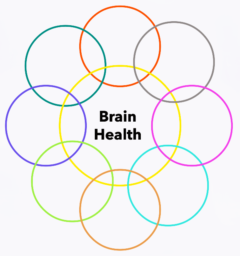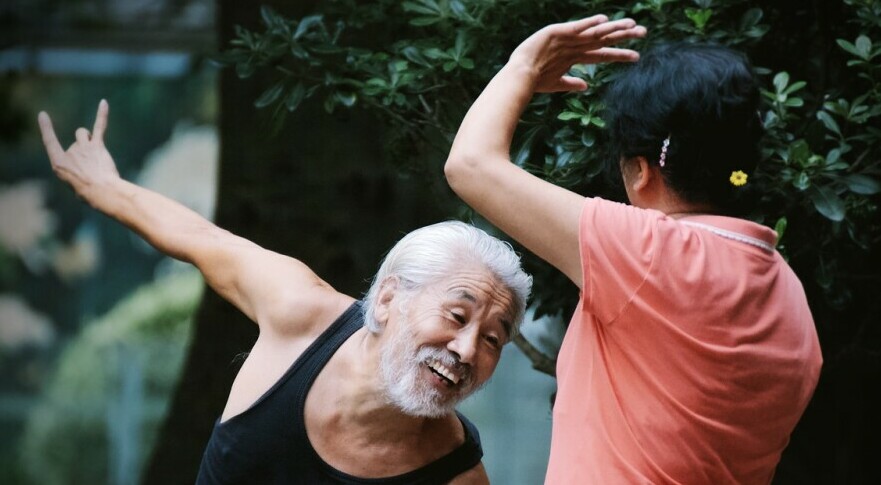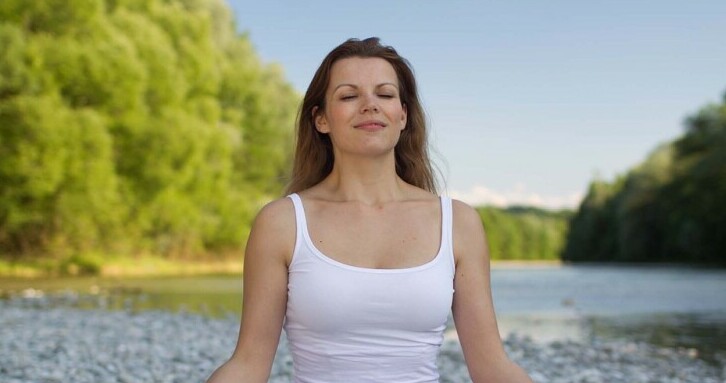
Want an enjoyable workout that will improve your brain health? Take up hiking. Its a simple activity that combines exercise with immersion in nature to supports brain health in multiple ways. Here are some of the many ways hiking provides a supercharged workout for your brain and your body.
Exercise is Good for Your Brain
Exercise is the best way to improve your brain health and prevent dementia. Regular exercise supports the health of your cardiovascular system, which is important since about 15 to 20 percent of the blood pumped by your heart goes to your brain. Even though the brain composes only 2 to 3 percent of your body mass it requires lot of blood flow to meet its needs.
Not only does exercise provide the brain with energy and oxygen, it releases endorphins which boost your mood, improve sleep quality, and replenish areas of the brain such as the prefrontal cortex and the hippocampus which have roles in attention and memory.
Regular exercise also prevents the loss of total brain volume that happens as we age. “Physical exercise can grow and promote gray matter retention and thickness in important regions of the brain, like hippocampus and the prefrontal cortex.,” says Dr. Sarah C. McEwan, a cognitive psychologist and senior researcher at the Pacific Neuroscience Institute at Providence Saint John’s Health Center.
These positive changes are accompanied by an increase in brain-derived neurotrophic factor (BDNF), a protein essential for healthy cognitive function. “You could think of BDNF as the secret sauce or Miracle Grow for neurons in your brain. It basically helps them stay alive,” says McEwen. “Exercise seems to be the silver bullet to increase it.”
Walking on uneven outdoor surfaces stimulates brain activity since your brain must continually calculate how to execute body movements. This is an excellent workout for the brain.
Breathing Fresh Air
Not only is exercise the best way to improve your brain health but exercising outdoors is far superior to exercising indoors. Oxygen content of outdoor air tends to be greater than indoor air due to build of CO2 levels and pollutants indoors. Greater oxygen intake outdoors increases the level of oxygen circulating in the blood and increases oxygenation of brain cells.
When you exercise outdoors by hiking the increased oxygen intake enhances the release of serotonin and other endorphins associated with increased energy levels, mental clarity, memory, happiness, mood stabilization, and feelings of accomplishment. Fresh air also cleanses your lungs, boosts your immune system, improves your digestion, helps you sleep better at night, and reduces airborne illnesses and infections when compared to breathing indoor air.
Challenge and Novelty Activate the Hippocampus
In addition to the benefits of outdoor exercise, hiking has the advantage of interacting with a cognitively challenging, unpredictable, and novel environment. Hiking involves navigating natural trails in an unpredictable environment. With rugged terrain, hidden obstacles, weather changes, wild animals, and other unknowns, hikers must make adjustments to their route and constantly evaluate and adapt to new circumstances as well as continually calculate how to execute body movements on irregular surfaces. This level of attention and spatial awareness provides a good workout for the hippocampus.
The hippocampus plays an essential role in learning and forming new episodic memories and later transferring them to long-term memory. In addition to its role in learning, memory formation, spatial orientation, and navigation, the hippocampus
Walking on uneven outdoor surfaces stimulates brain activity since your brain must continually calculate how to execute body movements. This is an excellent workout for the brain.
Sunlight
Exposure to sunlight helps regulate your cortisol cycle. Cortisol, the stress hormone, spikes in the morning with an influx of light helping you to wake up. Cortisol usually dips at night helping you to fall asleep. Sunlight is more effective than indoor light in helping keep this rhythm regular. Getting sunlight during the day helps you get a good night’s sleep, which helps remove waste products such as plaque from your brain.
Being out in the sunlight for as little as 5 to 15 minutes a few times a week helps your skin synthesize vitamin D, an essential nutrient for brain function. Vitamin protects your neurons, modulates cell growth, and reduces inflammation.
Bright sunlight also improves your mood by increasing production of serotonin, one of the “feel-good” endorphins. Serotonin also works in conjunction with melatonin, another hormone the sun helps your body produce to help you fall asleep.
Sensory Stimulation
When you are out in nature you are enveloped by a multitude of sensory experiences. You feel different surfaces and textures under your feet. You feel the wind against your skin. You see leave fluttering on the trees while the branches sway in the breeze. You hear the sounds of those swaying tree branches along with birds calling and small critters crawling. There are various smells of life that you do not get indoors. There are sun-dappled surfaces everywhere. There are shapes not found in the man-made world such as seashells, trees, clouds, rock formations, and snowflakes.
The multi-sensorial experiences in natural settings are important in developing and sustaining cognitive, physical, and emotional health. Sensory stimulation enhances brain development by creating and strengthening neural connections that enable complex thinking and problem-solving. Sensory stimulation also improves motor skills, coordination, balance, and body awareness by engaging different muscle groups and sensory systems. Sensory stimulation enhances emotional health by promoting a sense of interconnectedness and openness to a broader perspective on life. By slowing down and noticing more while hiking your mind can take in more of your surroundings and have more time to process your experiences. People report that this change of pace and perspective often results in breakthroughs in problem-solving and creativity.
Conclusion
Hiking combines exercise, breathing fresh air, sunlight, new and challenging experiences, and sensory stimulation to improve and maintain brain health and cognitive function. It reduces the risk of developing neurodegenerative disorders and mental illness as you age.
Beginners and experts alike can benefit from regular hiking. For beginners, it is important to start off with short, easy hikes and slowly increase distance and elevation gain to avoid injury and fatigue. Furthermore, regular hiking is more beneficial than infrequent intense hiking.
A Harvard study shows that compared to people who don’t walk much at all walking 3,800 steps per day (about 2 miles per day) reduces dementia risk by 25%. Those walking 9,800 steps per day ( almost 5 miles per day) reduced dementia risk by 51%.
Hiking is an enjoyable way of getting your walking steps in. Hiking in a natural setting has the added benefit of reducing stress. Stress has been shown to contribute to the development of dementia. So regular hiking can reduce stress in your life and help prevent dementia.




Hi Dan,
Your website is spot on, and the concept of nature contributing to our health resonates with me. I’ve personally experienced the positive impact of spending time outdoors, especially when walking my dog. In the past couple of years, we’ve all come to appreciate the outdoors a little more.
On a related note, I’ve had some issues with my back over the years. I’m curious about your perspective on whether hiking might be a better option than running, considering my back concerns. Additionally, I’m interested in understanding the calorie-burning benefits of each activity. Your expertise on these matters would be greatly appreciated!
Looking forward to your insights.
Cheers,
Dean
Hi Dean,
Thanks for your positive comment. I too have a problem that limits how much high-impact exercise I can tolerate. According to my orthopedist I am due for a knee replacement. But I find that I do just fine if I don’t overdo it when hiking. I let my knee tell me when its had enough as far as distance and strenuousness. Hiking poles help too, especially if you want to avoid straining your back. They add stability and balance especially on rugged terrain
Not knowing the nature of your back concerns, all I can say is start slow with hiking and build up to a level that works for you and avoids injury. Hiking is a low-impact and high-endurance form of exercise. The more distance and elevation gain you cover the more calories you will burn. Steep hikes can quickly burn a lot of calories, so its a good idea to take some easily digestible snacks with you to replenish your energy.
I hope that helps. Thanks again for your comment.
Dan